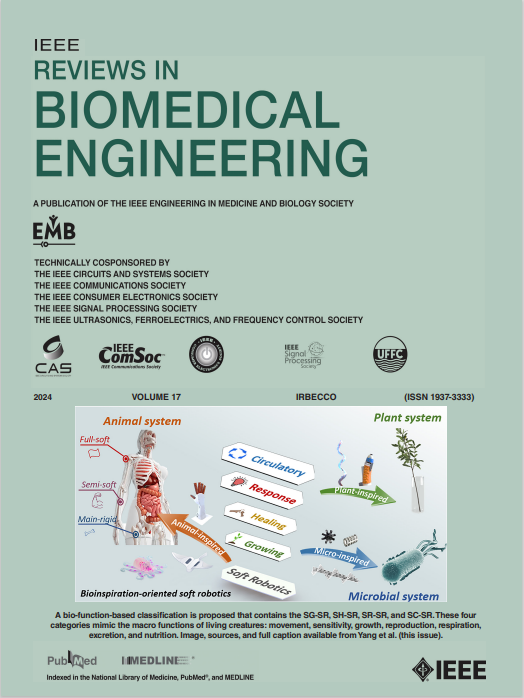人工智能在外科新兴技术中的应用:系统回顾与验证
IF 17.2
1区 工程技术
Q1 ENGINEERING, BIOMEDICAL
引用次数: 6
摘要
手术是一种高风险的治疗程序,与住院时间更长、估计失血量和手术持续时间长等创伤后并发症有关。报告显示,超过2.5%的患者在手术期间和手术后死亡。本文旨在系统回顾以往在外科手术中对人工智能的研究,并用合适的软件分析其结果,以通过获得相同或相反的结果来验证其研究。已经在三大洲发表了六篇研究文章。使用SPSS和MedCalc等软件对这些文章进行了重新验证,以获得平均值、标准差、显著性水平和标准误差等统计特征。根据显著值,然后根据零假设(p<0.05)或替代假设(p>0.05)对实验进行分类。分析结果表明,使用人工智能的机器人辅助手术与正常常规手术在手术时间、对接时间、分期时间和估计失血量方面存在显著差异,但在住院时间、恢复时间和淋巴结收获方面没有显着差异。根据评估,这项研究表明,人工智能辅助手术比传统手术更安全、更有效,并发症最少或没有。本文章由计算机程序翻译,如有差异,请以英文原文为准。
Artificial Intelligence for Emerging Technology in Surgery: Systematic Review and Validation
Surgery is a high-risk procedure of therapy and is associated to post trauma complications of longer hospital stay, estimated blood loss and long duration of surgeries. Reports have suggested that over 2.5% patients die during and post operation. This paper is aimed at systematic review of previous research on artificial intelligence (AI) in surgery, analyzing their results with suitable software to validate their research by obtaining same or contrary results. Six published research articles have been reviewed across three continents. These articles have been re-validated using software including SPSS and MedCalc to obtain the statistical features such as the mean, standard deviation, significant level, and standard error. From the significant values, the experiments are then classified according to the null (p < 0.05) or alternative (p>0.05) hypotheses. The results obtained from the analysis have suggested significant difference in operating time, docking time, staging time, and estimated blood loss but show no significant difference in length of hospital stay, recovery time and lymph nodes harvested between robotic assisted surgery using AI and normal conventional surgery. From the evaluations, this research suggests that AI-assisted surgery improves over the conventional surgery as safer and more efficient system of surgery with minimal or no complications.
求助全文
通过发布文献求助,成功后即可免费获取论文全文。
去求助
来源期刊

IEEE Reviews in Biomedical Engineering
Engineering-Biomedical Engineering
CiteScore
31.70
自引率
0.60%
发文量
93
期刊介绍:
IEEE Reviews in Biomedical Engineering (RBME) serves as a platform to review the state-of-the-art and trends in the interdisciplinary field of biomedical engineering, which encompasses engineering, life sciences, and medicine. The journal aims to consolidate research and reviews for members of all IEEE societies interested in biomedical engineering. Recognizing the demand for comprehensive reviews among authors of various IEEE journals, RBME addresses this need by receiving, reviewing, and publishing scholarly works under one umbrella. It covers a broad spectrum, from historical to modern developments in biomedical engineering and the integration of technologies from various IEEE societies into the life sciences and medicine.
 求助内容:
求助内容: 应助结果提醒方式:
应助结果提醒方式:


